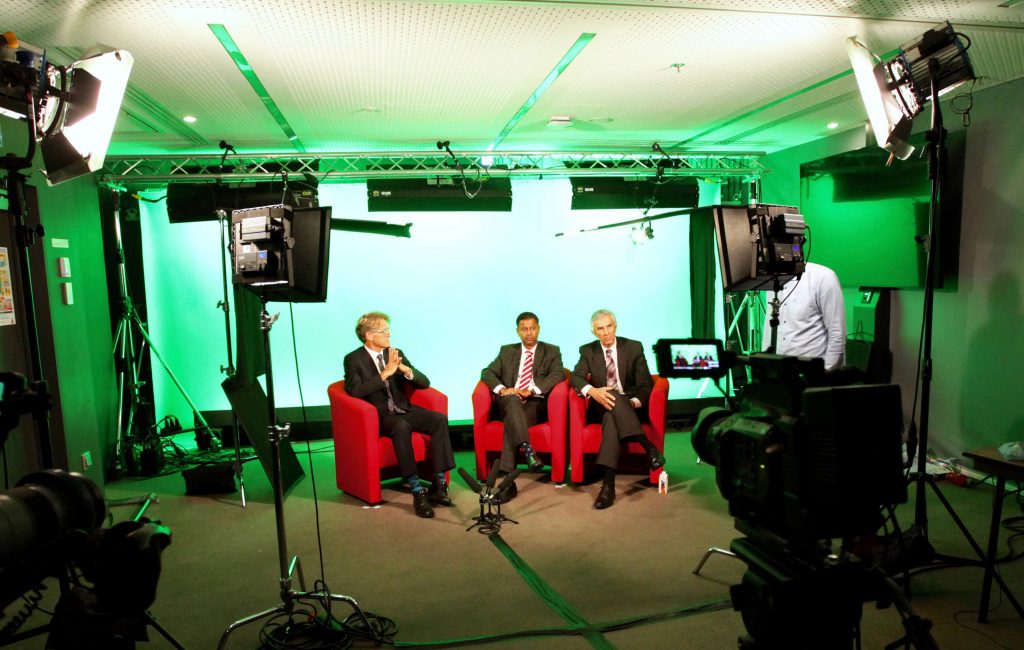From the mouths of the pioneers
Eye Contact videos offers advice for starting young surgeons to the latest in management trends

Aidan Hanratty
Published: Sunday, September 15, 2019
 The life of an ophthalmologist is a busy one, but one must always make time for learning. That is why the ESCRS EuroTimes Eye Contact videos have proven such a success with doctors of all ages and levels of experience.
“There are only 24 hours in a day and that simple fact has taught me the importance of prioritising time to try and successfully juggle my roles as parent, spouse, teacher, surgeon and innovator,” says Soosan Jacob MD.
“What I love about the video series is the range it offers right from advice for starting young surgeons to the latest in management trends around the world. Tips for handling tough surgical situations, news and views about various diagnostic and treatment modalities, new technologies, complication management and so on – all in an easy-to-digest, casual, conversational format straight from the mouths of pioneers and key opinion leaders adds great value to my clinical practice.”
The format sees an eminent surgeon interviewed by a journalist or colleague at ESCRS Congresses, discussing the latest research, techniques and approaches when it comes to the diagnosis and treatment across the full spectrum of ophthalmology. These interviews also explore controversies and debates in the field.
“My colleagues have been very generous in sharing their time and expertise with us,” said Oliver Findl MD, Secretary of the ESCRS and Chairperson of the ESCRS Young Ophthalmologists Committee, “and we have had the privilege of hearing from Zoltan Nagy, Rudy Nuijts, José Güell, Marie-José Tassignon, David Spalton, Dan Epstein, Thomas Kohnen, Boris Malyugin, Soosan Jacob, Paul Rosen, to name but a few.”
Recent discussions have covered the benefits of SMILE over LASIK, debates on cross-linking protocols, management of corneal complications after refractive surgery and a look at the future of femtosecond lasers in cataract surgery.
The ESCRS Player also features Videos of the Month, where doctors introduce outstanding videos submitted to the ESCRS Video Competition throughout the year. There is also an Online Museum, looking at ophthalmology throughout history, as well as instructional courses and a dedicated section showing techniques performed and described by experts.
“I remember when we launched our first videos, it was seen to be quite a daunting challenge as many of our members were not used to the environment of the television studio, which can be quite intimidating,” said Dr Findl.
“But with experience, and with the assistance of our excellent television crew, our leading ophthalmologists look like natural performers in front of the camera.”
The ESCRS videos can be viewed on the ESCRS Player at player.escrs.org
The life of an ophthalmologist is a busy one, but one must always make time for learning. That is why the ESCRS EuroTimes Eye Contact videos have proven such a success with doctors of all ages and levels of experience.
“There are only 24 hours in a day and that simple fact has taught me the importance of prioritising time to try and successfully juggle my roles as parent, spouse, teacher, surgeon and innovator,” says Soosan Jacob MD.
“What I love about the video series is the range it offers right from advice for starting young surgeons to the latest in management trends around the world. Tips for handling tough surgical situations, news and views about various diagnostic and treatment modalities, new technologies, complication management and so on – all in an easy-to-digest, casual, conversational format straight from the mouths of pioneers and key opinion leaders adds great value to my clinical practice.”
The format sees an eminent surgeon interviewed by a journalist or colleague at ESCRS Congresses, discussing the latest research, techniques and approaches when it comes to the diagnosis and treatment across the full spectrum of ophthalmology. These interviews also explore controversies and debates in the field.
“My colleagues have been very generous in sharing their time and expertise with us,” said Oliver Findl MD, Secretary of the ESCRS and Chairperson of the ESCRS Young Ophthalmologists Committee, “and we have had the privilege of hearing from Zoltan Nagy, Rudy Nuijts, José Güell, Marie-José Tassignon, David Spalton, Dan Epstein, Thomas Kohnen, Boris Malyugin, Soosan Jacob, Paul Rosen, to name but a few.”
Recent discussions have covered the benefits of SMILE over LASIK, debates on cross-linking protocols, management of corneal complications after refractive surgery and a look at the future of femtosecond lasers in cataract surgery.
The ESCRS Player also features Videos of the Month, where doctors introduce outstanding videos submitted to the ESCRS Video Competition throughout the year. There is also an Online Museum, looking at ophthalmology throughout history, as well as instructional courses and a dedicated section showing techniques performed and described by experts.
“I remember when we launched our first videos, it was seen to be quite a daunting challenge as many of our members were not used to the environment of the television studio, which can be quite intimidating,” said Dr Findl.
“But with experience, and with the assistance of our excellent television crew, our leading ophthalmologists look like natural performers in front of the camera.”
The ESCRS videos can be viewed on the ESCRS Player at player.escrs.org